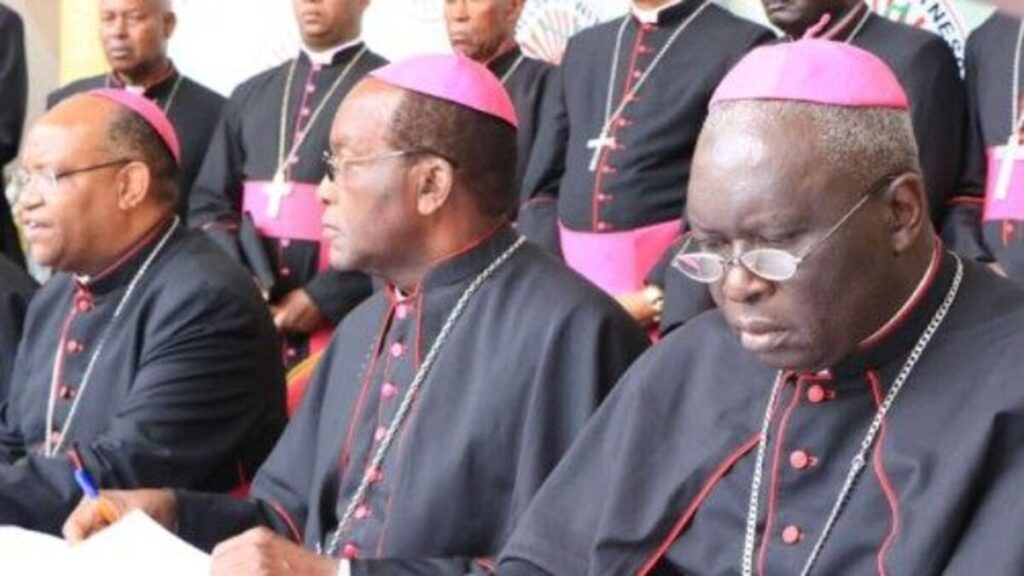The Kenya Conference of Catholic Bishops (KCCB) has raised serious concerns about widespread corruption and its devastating impact on the nation. In their latest statement delivered at Clergy House in Ruaraka, Nairobi, the bishops highlighted how corruption has become deeply entrenched in Kenyan society.
KCCB Chairman Archbishop Philip Anyolo led the bishops in addressing several critical issues facing the country. They emphasised that corruption has reached “national disaster levels” and threatens the fabric of Kenyan society.

“The situation of corruption in our nation has reached alarming proportions,” Archbishop Anyolo stated. “Kenyans have been treated to reports of corruption and misuse of public resources daily.”
The bishops expressed particular concern about the impact on youth and vulnerable populations. They noted a disturbing trend of young people falling into depression due to unemployment and lack of opportunities.
“Our young people are increasingly descending into depression out of frustration in their lives,” the statement read. “A society where young people see no hope and no future is doomed.”
Members of the Kenya Conference of Catholic Bishops (KCCB) during a press briefing on 10 November 2022. Credit: KCCB
The religious leaders highlighted how corruption has affected food security in the country. They pointed out that millions of Kenyans are dependent on food aid while emergency funds meant for such crises disappear through corruption.
In addressing political challenges, the bishops criticised the recurring cycle of ineffective leadership. They described the current political landscape as “a game of musical chairs” played by recycled politicians lacking vision.
The KCCB outlined specific actions to combat corruption. These include mobilising Catholic faithful at all levels from dioceses to small Christian communities to reject corrupt practices.
“We pledge to fight corruption by all means,” the bishops declared. “Any act of corruption closes the door for us to enter the Kingdom of God.”
The statement also addressed broader forms of corruption beyond financial misconduct. These include misuse of time, abuse of office power, and preferential treatment that creates inequalities.
Of particular concern to the bishops is the growing culture of group solidarity that sometimes protects wrongdoers. They cited examples including ethnic communities, political groups, and professional bodies defending members regardless of guilt.
The religious leaders expressed worry about Kenya’s rising wage bill and national debt. They criticised lawmakers who push for salary increases while millions of citizens struggle with poverty.
“The huge wage bill that Kenyan taxpayers support is too much,” they stated. “This unbearable burden is breaking the backs of the poor.”
The bishops demanded answers from government agencies responsible for fighting corruption. They questioned why the Director of Public Prosecutions (DPP), Directorate of Criminal Investigations (DCI), and Ethics and Anti-Corruption Commission (EACC) have not secured more convictions.
Despite the grave concerns, the bishops’ message included hope for change. They emphasised that creating a corruption-free country is possible if Kenyans unite in the effort.
“We must not resign ourselves to this monster,” they urged. “The fight begins with each one of us, individually and collectively.”
The KCCB represents 26 Catholic jurisdictions across Kenya, including four archdioceses, 20 dioceses, one apostolic vicariate, and one military ordinariate. Their statement reflects growing concern among religious leaders about Kenya’s moral and economic direction.
The bishops concluded by calling on all Kenyans to choose integrity and justice over corrupt practices. They quoted the prophet Amos: “Seek good and not evil that you may live, hate evil and love good, and let justice prevail.”